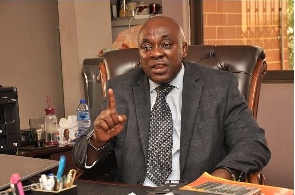When a man has done what he considers to be his duty to his people and his country, he can rest in peace—Nelson Mandela, 1994.
And I hear the angel with the seven seas say; Babylon throne gone down, gone down…I say fly away home; I say fly away home. One bright morning when my work is over, man will fly away home—Bob Marley, “Rasta Man Chant.”
The sad news of the sudden passing of one of the world’s adored moral leaders came as a shock. Indeed, one of the greatest men of our time, Nelson Rolihlahla Mandela, has passed on, joining the pantheon of creative leadership: Harriet Tubman, Kwame Nkrumah, Sojourner Truth, Marcus Garvey, Mother Teresa, Walter Sisulu, Malcolm X, Oliver Tambo, Julius Nyerere, Martin Luther King, Jr…The following eulogia have since trailed his passing:
President Barack Obama—“He achieved more than could be expected of any man. Today he’s gone home, and we’ve lost one of the most influential, courageous and profoundly good human beings that any of us will share time with on earth.”
Jacob Zuma—“Our people have lost a father. Although we knew this day was going to come, nothing can diminish our sense of a profound and enduring loss.”
UN Secretary-General Ban Ki-moon—“Nelson Mandela was a giant for justice and a down-to-earth human inspiration. Nelson Mandela showed what is possible for our world and within each one of us if we believe, dream and work together for justice and humanity.”
FW De Klerk—“He was a great unifier and a very, very special man in this regard beyond everything else he did.”
UK Prime Minister David Cameron—“Not just a hero of our time, but a hero of all time.”
Kofi Annan—“The world has lost a visionary leader, a courageous voice for justice, and a clear moral compass. By showing us that the path to freedom and human dignity lies in love, wisdom, and compassion for one another, Nelson Mandela stands as an inspiration to us all.”
Benjamin Netanyahu—”Nelson Mandela was one of the outstanding figures of our time. He was the father of his nation, a man of vision, a fighter for freedom who avoided violence. He was a humble man who provided a personal example for his nation during the long years he spent in prison.”
Wasn’t Israel one of the most powerful friends of Apartheid South Africa? Was Mandela “a man of vision,” “the father of his nation,” “a humble man,” “a freedom fighter,” and “a man of vision” when the State of Israel solidly supported Apartheid South Africa? Did Ronald Reagan, America, and the West, in general, see Mandela as “a freedom fighter”? Directly or indirectly, didn’t Jimmy Carter’s book “Palestine: Peace Not Apartheid” speak to this closet relationship between Apartheid South Africa and the State of Israel?
How great! And how strange the political animal suddenly changes its spots and dancing tune, a beautiful tune Billy Joel once called “We Didn’t Start The Fire”! Yet the world into which Nelson Mandela, David Cameron, Barack Obama, Jacob Zuma, Kofi Annan, Ban Ki-moon, Benjamin Netanyahu, and De Klerk were born is as comically hellish and hypocritically dangerous as it is contradictorily Orwellian. De Klerk for one calls Mandela “a great unifier” even while he, as recent as 2012, vigorously defended the benefits of separate racial states under Apartheid.
Cameron, on the other hand, calls Mandela “a hero” even while a section of the British public, represented by conservatives in Westminster Council, fiercely opposed the erection of Mandela’s bronze statue on London’s Parliament Square. Was Mandela “a hero” when Margaret Thatcher adroitly swam in a conservative political marriage with Ronald Reagan? That being said, several insightful commentators, including Glenn Ford, an editor at Black Report Agenda, have hinted at the global elevation of Mandela by the West for an obvious wrong reason: Capitalism. That is, the role of British political manipulation of Mandela in protecting Britain’s economic interests in post-Apartheid South Africa.
Wasn’t Margaret Thatcher a great friend of Apartheid South Africa? In fact, isn’t the legacy of Margaret Thatcher deeply intertwined with the shameful legacy of Aparthied? Wasn’t Ronald Reagan himself a great friend of Apartheid South Africa? Ford writes: “The 1994 agreement between Nelson Mandela’s ANC and the white South African regime was a pact with the devil, which could only be tolerated by the masses of the country’s poor because it was seen as averting a bloodbath, and because it was assumed to be temporary. But, 18 years later, the agreement has calcified into a bizarre protectorate for foreign white capital and the small class of Blacks that have attached themselves to the global rich.”
Is America South Africa or Brazil? Where is Abdias do Nascimento? Isn’t South Africa a microcosm of America in many respects? In fact, what do MIT Prof. Craig S. Wilder’s influential book, “Ebony $ Ivy: Race, Slavery, And The Troubled History of America’s Universities,” and the four South African white male students from the University of the Free State who forced black cleaners to eat urine-soaked meat, have in common? Racism, slavery, and intolerance. Why should they poison black employees on the basis of their dislike for integration? Aren’t South Africa’s institutions built on the suffering of Black South Africa?
Let’s leave that for now and continue from Ford’s end. What is more, responding to Ford’s essay, “South Africa’s Unfinished Revolution And The Massacre At Marikana,” a piece from which we quoted Ford above, a commentator who goes by the name Joell, writes: “There is the Nelson Mandela Statue in London Parliament Square and they celebrate his birthday every year, supposedly for representing the ‘dignity of Africa.’ In reality, it’s a reward for preserving British financial interests in South Africa.” Therefore, in the opinion of Western capitalists, was Mandela “a hero” of capitalist triumphalism or “a hero” of social and racial justice? Western political capitalists would seem to have won, hands down, on the strength of social and economic realities in post-Apartheid South Africa alone!
Then again, possibly, this pact with “the devil,” an arrangement Ford eloquently referred to, appears to form the basis of the collective anger of Black South Africa against Black leadership, particularly Nelson Mandela. In reality, many believe he sold out blacks in exchange for his and his friends’ freedom, as part of the negotiated settlement with the Nationalist government of P.W. Botha, to bring Apartheid to an end. This is because The Freedom Charter of the ANC had called for the nationalization of South Africa’s national wealth and, consequently, its return to the people. This was not to be.
This had, therefore, meant, among other things, completely breaking white monopoly over the people’s wealth, South Africa’s national wealth. But then again, Black South Africa also had faulted Mandela for separating politics from economics in his negotiated settlement with the Nationalist government. It soon became clear as Mandela assumed the presidency that he was not going to adhere to the stipulations enshrined in The Freedom Charter. It also became apparent that he was not going to pursue economic freedom for Black South Africa.
In fact, if had done precisely that, entangling political power with economic freedom for blacks, that would have contravened the secret arrangements he had made with the white Nationalist government, this, according to the candid opinion of hotheaded conspiratorialists and well-informed political analysts. Therefore, this may partly explain why the entire fabric of the negotiated settlement seemed to have met the fierce disapproval of some of the core leadership of the ANC.
Oliver Tambo, for instance, upon getting wind of Mandela’s secret negotiations with the government of P.W. Botha, opined that it was not in the best interest of prisoners to negotiate their release. These secret negotiations would come to haunt South Africa. In fact, they didn’t augur well for the new South Africa. Quite poignantly, other core ANC leaders speculated that Mandela’s betrayal may have precipitated Tambo’s initial stroke. On the contrary, some contrarian commentators have lauded Mandela for rigorously pursuing political power for Black South Africa, even going so far as to theorize that pursuit of political power necessarily led to economic power.
Those who made this bold claim underestimated the power of history, the political economy of entrenched social injustice, and structural deficits in society, particularly a racist one. The question, in and of itself, recalls the proverbial “chicken and egg situation.” Couldn’t it have been equally right to assert that economic power necessarily led to political power? Could Mandela have achieved any lasting success if he had rigorously pursued both goals simultaneously? Hindsight may not be a suitable replacement for objectivity.
Yet, quite apart from our reservations, the hypothesis is only nominally true. Even if the hypothesis has any sociological or econometric validity, it, certainly, is the Black leadership, a few members of the ANC, whose political power has turned into gold, a feat achieved through the political alchemy of black impoverishment and through the increased oligopoly of white cartelized power. This is evidenced by the lavish lifestyles of the leadership of the ANC and those closest to them. The poor black masses have seen this open evidence for themselves.
Yet, rather than bridging the gross disparities between the rich black and the poor black, the corrupt leadership of the ANC has strategically shifted black anger to Julius Malema, the charismatic ex-ANC Youth Leader, citing flimsy excuses such as his association with Zimbabwe’s Robert Mugabe and late Venezuela’s Hugo Chavez, both pariahs in Western political consciousness. This, despite the fact that Africans voted President Robert Mugabe “the third-greatest African of all time,” according to the New African Magazine.
Moreover, regarding the theoretical complexities surrounding the relationship between political power and economic power, there’s universal sociological data to undermine an alleged transition between political power and economic benefit for a brutalized people, a wholesome one, of course, especially for black minorities in any major republic. That is to say, political power has not directly translated into economic power for the black masses in Brazil, America, and South Africa.
A highly respected and keen observer understands the post-South African political dilemma. “I believe, at the end of the day, the kind of compromises we made in 1994 are coming to haunt us. In 1994, we took the political kingdom. We delayed the economic kingdom. I believe that the patience of blacks have not been rewarded with a requisite generosity from whites and from the owners of our economy,” Mr. Ebrahim Rasool, South Africa’s ambassador to America, tells Amy Goodman of Democracy Now.
Ordinarily, this proposition is philosophically unlike Kwame Nkrumah’s “seek ye the political kingdom first and everything else shall be added onto it,” given that the social and political contexts in Nkrumah’s Ghana and Mandela’s South Africa were radically different—though both leaders demonstrated uncompromising tendencies in their dealings with racism. On the other hand, the shamefully patronizing decisions made by African leaders such as Ghana’s Kofi Busia, Ivory Coast’s Félix Houphouët-Boigny, and those of Malawi strengthened the racist and exploitative hand of Aparthied around the hyoidean neck of Black South Africa!
Let’s begin to shed real, not crocodile, tears for Madiba! We ask the good people of South Africa and all peace-loving people to join us in commiserating with Mandela’s family. We shall return with Part ll…












